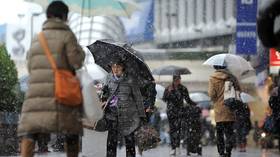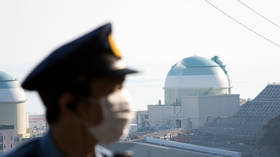Japanese inflation hits 40-year high

Japan’s core consumer inflation benchmark hit a fresh four-decade high last month as companies continued to pass on rising costs to households, government data showed on Friday.
The nationwide consumer price index (CPI), which excludes volatile fresh food but includes energy costs, jumped 3.7% in November from a year ago, in line with market forecasts and up from a 3.6% gain in the previous month. It was the biggest rise since December 1981.
The data showed that, aside from utility bills, prices rose for a wide range of goods – from fried chicken, to smartphones, to air conditioners.
According to research firm Teikoku Data Bank, companies plan to hike prices for over 7,000 food products in the first four months of 2023. That’s more than double the number of the same period this year.
“We'll likely see a rush in price hikes next year that could be more intense than this year,” the research firm has warned, as companies face rising labor and distribution costs.
On Tuesday, the Bank of Japan (BOJ), the country’s central bank, surprised markets with a policy change, signaling that it could begin moving away from years of ultra loose policies aimed at spurring wages and prices higher.
The BOJ said it would loosen the tight limits it had imposed on bond yields, which could mean future interest rate increases. The bank’s governor, Haruhiko Kuroda, stated that the BOJ had no intention to roll back stimulus as inflation was set to slow below 2% next year.
Japan’s economy unexpectedly contracted an annualized 0.8% in the third quarter of 2022 amid global recession concerns and higher import costs weighing on consumers and businesses.
For more stories on economy & finance visit RT's business section













